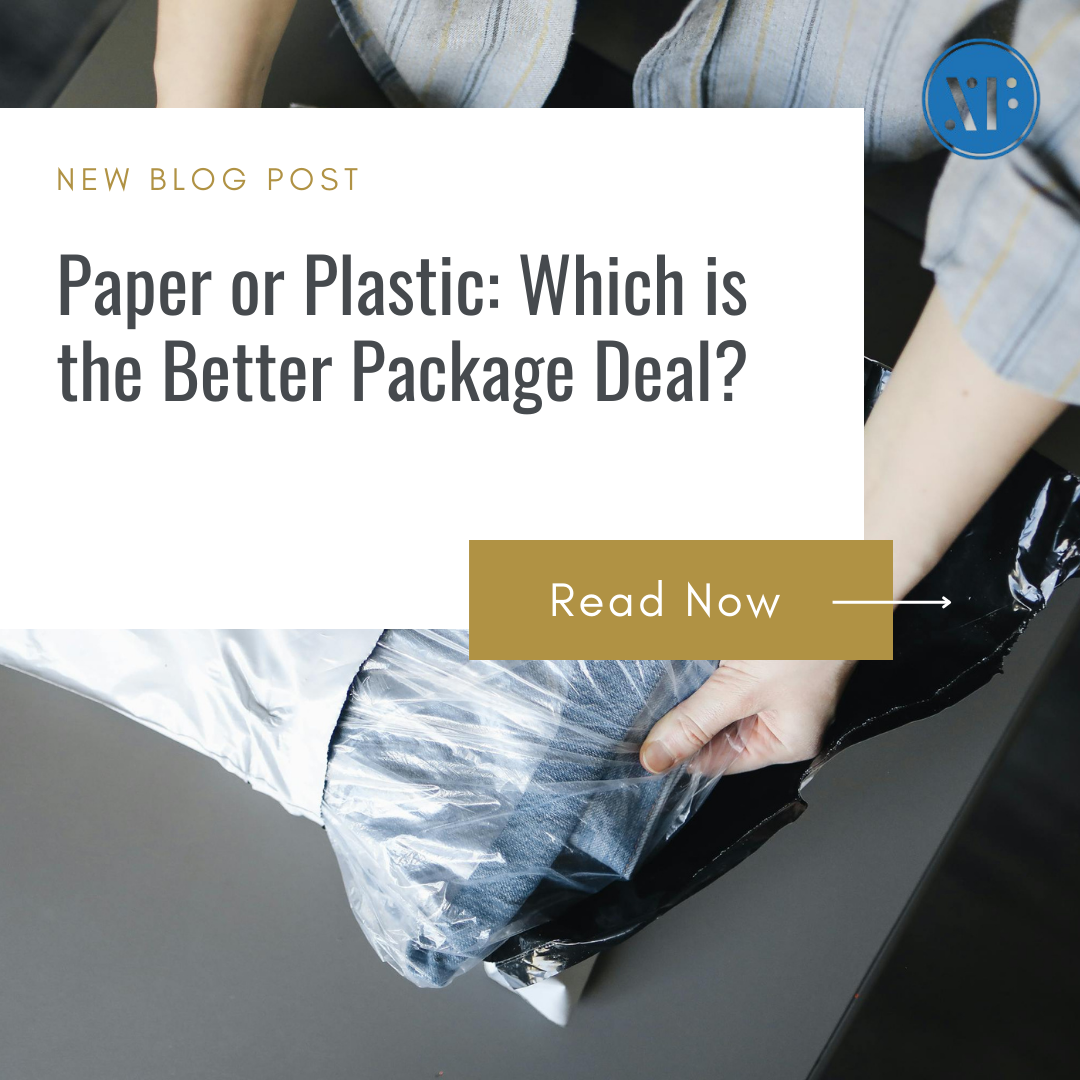Plastic vs paper: it’s the classic packaging debate. Both materials have long dominated the industry, but as sustainability becomes a pressing issue, the question remains, which is truly the more responsible choice for businesses and consumers? The answer, as it turns out, is more complicated than it seems.
Why the Packaging Choice Matters
For businesses, choosing the right packaging material is no longer just about cost efficiency or practicality. With increasing regulations, particularly in the EU, and a growing demand from consumers for eco-friendly solutions, packaging decisions are becoming central to brand identity. Companies that align with sustainable causes not only meet compliance standards but also build stronger reputations with eco-conscious customers.
Plastic Packaging: Everywhere, but at What Cost?
Plastic has become one of the most widely used packaging materials because of its flexibility, resilience, and low production costs. It’s light, easy to transport, and works across countless industries.
Pros of Plastic
- Highly flexible and resilient
- Cheap to produce
- Lightweight, making transport easier
Cons of Plastic
- Derived from fossil fuels
- Emits greenhouse gases throughout its lifecycle
- Takes centuries to degrade (and never fully disappears, just breaks down into microplastics)
- Often single-use and difficult to recycle
The environmental toll of plastic is enormous. Research shows:
- 44% of seabird species
- 22% of whales, dolphins, and porpoises
- 52% of sea turtles
…have ingested plastic. Add to that the fact that up to 85% of marine litter is plastic, and it’s clear that plastic’s benefits come at an unsustainable price.
Paper Packaging: Biodegradable but Resource-Intensive
Paper is often seen as the more sustainable alternative because of its recyclability and biodegradability. Consumers also tend to associate paper packaging with a more premium, natural feel.
Pros of Paper
- Easy to recycle
- Biodegradable
- Versatile and reusable when designed properly
Cons of Paper
- Poor choice for greasy or chemical products
- Requires deforestation if not responsibly sourced
- Produces significant GHG emissions during production
- High water usage
- Often heavier than plastic, increasing transport emissions
Producing a paper bag, for example, takes nearly four times the energy of producing a plastic one. Paper production also relies heavily on water and often leads to deforestation unless sourced responsibly. Reports show that in the EU alone, 32.7 million tonnes of paper packaging waste were generated in 2020, making it the largest contributor to packaging waste. So, while paper is biodegradable and recyclable, it comes with its own serious environmental trade-offs.
Consumer Preferences: Paper Feels Premium, Plastic Feels Problematic
Beyond environmental impact, consumer perception also plays a key role. A study from the University of Reading found that the texture and feel of packaging influences how consumers view a brand. Paper packaging, with its matte texture and rustling sound, conveys a more premium, eco-conscious impression. Plastic, on the other hand, often feels synthetic and mass-produced, giving a negative impression about a brand’s sustainability commitments.
XF Packaging Co. Ltd
Established in 2003 and headquartered in Dongguan, Guangdong Province, XF Packaging is a leading enterprise focused on the development and manufacturing of eco-friendly packaging materials.As a compostable bag manufacturer, we are committed to delivering high-quality products and services to customers both domestically and globally. Over the years, we have built a strong brand image and reputation within the industry. We are proud to serve renowned enterprises such as Walmart and China Post EMS, and we have earned consistent recognition for our quality and service.
Looking ahead, XF Packaging will continue to pursue an innovation-driven strategy, investing in the research and development of sustainable packaging. Our goal is to achieve long-term corporate growth while creating meaningful social value.
Join us in building a greener future. If your business is seeking sustainable packaging solutions, contact us today and let’s create eco-friendly value together.


